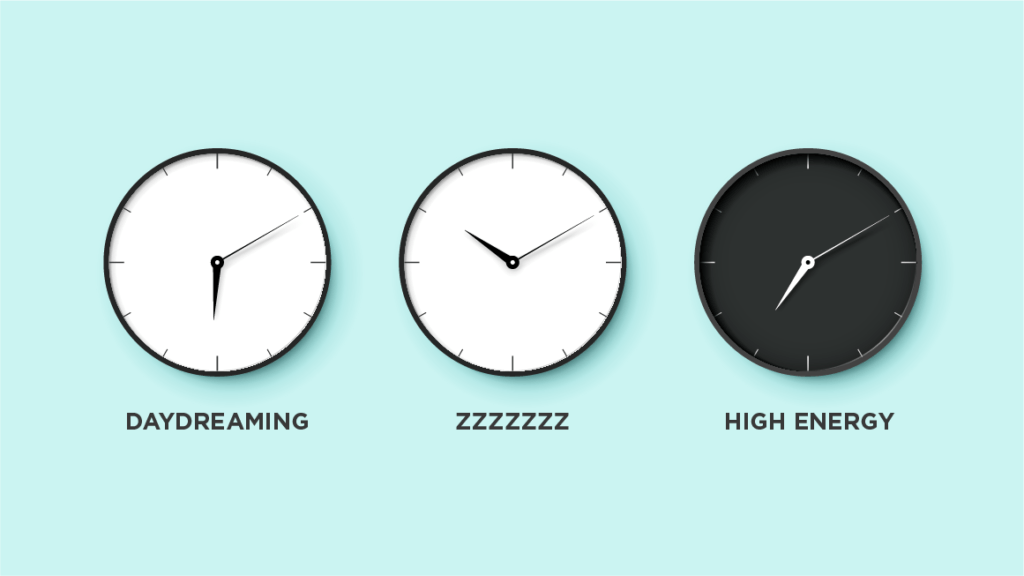Our Blog
The Science of Timing: A Deep Dive into Interview Scheduling and Candidate Evaluations

The hiring process is a delicate dance where both candidates and employers hope to make the right moves. While we often focus on the qualifications and skills of candidates, there’s another critical factor that often goes unnoticed: timing. In this blog, we will explore the science behind scheduling interviews and candidate evaluations to understand which time of day is best for interviews, which is worst, and when you should conduct candidate assessments. Let’s dive in.
The Morning Advantage:
Research consistently shows that mornings are the optimal time for cognitive tasks and decision-making. This is attributed to the body’s circadian rhythms and the fact that most people are well-rested after a night’s sleep. As a result, scheduling interviews in the morning can have several advantages:
- Freshness of Mind: Candidates are more alert and focused in the morning, which can lead to better interview performance.
- Enhanced Decision-Making: Interviewers are also likely to be more attentive and make more thoughtful hiring decisions.
- Reduced Stress: Morning interviews can help alleviate candidate stress, as they don’t spend the day anxious about the impending meeting.
The Midday Lull:
Around midday, most people experience a natural dip in energy levels. This period, known as the post-lunch slump, can impact both candidates and interviewers negatively:
- Reduced Alertness: Both candidates and interviewers may feel less alert and attentive during midday interviews.
- Decision Fatigue: Interviewers may struggle with decision fatigue, making it harder to assess candidates objectively.
- Hunger Pangs: Candidates may be distracted by hunger, affecting their performance.
The Afternoon Recovery:
While the post-lunch slump can be challenging, the late afternoon often sees a recovery in energy levels. This can be a suitable time for certain types of interviews or evaluations:
- Second-Round Interviews: If you’ve already screened candidates in the morning, conducting second-round interviews in the late afternoon can be effective.
- Task-Oriented Assessments: Hands-on assessments or skills tests may be better suited for this time, as they require practical demonstration rather than intense conversation.
Evening and Weekend Interviews:
Scheduling interviews in the evening or on weekends is generally discouraged. These times may not be conducive to candidate or interviewer availability, and they can blur the boundaries between work and personal life. However, in some cases, candidates who work during the day may prefer evening interviews.
Candidate Evaluations:
In addition to interview timing, the timing of candidate evaluations can impact hiring decisions. It’s essential to establish a consistent evaluation process that considers the following factors:
- Standardized Criteria: Develop a clear set of criteria against which all candidates are evaluated. This ensures fairness and consistency.
- Timely Feedback: Provide prompt feedback to candidates after interviews or assessments. Delays can lead to candidate frustration and loss of interest.
- Collaborative Assessments: Involve multiple team members in the evaluation process to reduce bias and gain diverse perspectives.
Conclusion:
The science of timing in the hiring process is complex and varies from person to person. While mornings are generally considered the best time for interviews, other factors such as candidate preferences and interviewer availability should also be considered. By understanding the nuances of timing and sequencing, you can optimize your hiring process and increase the likelihood of finding the right candidate for your organization.
How Long Should Your Resume Be?
Unveiling Bias: The Risks of AI in Recruiting
Key Questions to Ask When Interviewing for a Job
Gen Z Dynamics in the Workplace: Strategies for Engaging Younger Talent
Building Bridges: The Benefits of Getting Acquainted with Co-workers
Understanding and Managing Interview Anxiety
With great vision, you need great people
Looking for higher-level career opportunities in Greater Boston and throughout Massachusetts?
